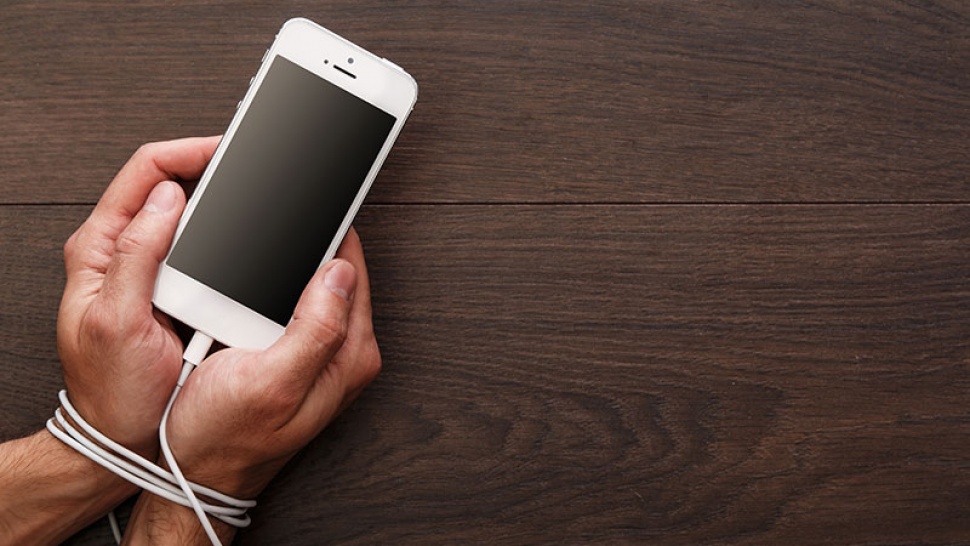Are we bored? Check our smartphone. Are we nervous? Check our smartphone. A cure for all the sickness, a solution to all problems.
The average person "checks" their phone 33 times a day (teenagers three times more). We spend, on average, two hours a day on browsing. Every third person looks into the phone within the first five minutes of waking up.
If we know that smartphones went into everyday use just 10 years ago, the question arises as to how did we got so addicted so fast? What gives smartphones the power to control our lives?
In younger people, dependence on mobile phones is mainly the accompanying phenomenon (which can also be the cause of) other problems, from social isolation, personal insecurity, dissatisfaction, lack of self-respect, but often narcissism and other diagnoses. In different degrees it is present in most of the young people, and is now considered as normal, which will surely have an increasing social impact in the coming decades.
However, adults are hooked on too. The fact that more people own a mobile phone than a toilet or a toothbrush no longer surprises anyone. We cannot resist checking our phone at a meeting, in a church, at a funeral.
10 years ago, a psychotic disorder was registered for the first time, the fear that we will be left without a mobile phone, which also got its name - nomophobia.
If it seems to us that the phone vibrates, even if it's not; if a cold sweat hits us when we forget the phone in the apartment or we shake when the battery is at the end – those are all symptoms and we should look deeper into our behavior.
Smartphone Addiction - Tips for Breaking Free of Compulsive Smartphone and Internet Use
Mobile phones connect us with a larger whole, with the world, with others, which is certainly one of the essential needs of people as social beings. In addition, they give a sense of security, because it's getting more difficult for us to find ourselves in the environment. However, this connection is an illusion because we do not receive realistic, complete information about the world, nor do we get real closeness with others, nor the ability to independently navigate in new environments.
Scientists warn that long-term use of the phone alters the structure and function of the brain, including the ability to create memories, to focus and deepen our thinking. It also affects the fact that mentally healthy individuals show signs of psychiatric problems such as obsessive-compulsive disorder and attention deficit.
And not only that, a smartphone reduces empathy and productivity, increases ego-centrism, makes us exhausted, and ultimately unhappy.
If we look at the phone all the time, we lose essential connectivity, closeness, quality communication, interest in others, the ability to listen, emotionally express, we understand emotions, the realities of others, to realistically view the world, observe people around us, find a normal partner. We lose the ability to have a better quality, a more peaceful sleep, better attention and concentration in learning and working. And perhaps most importantly, we forget to be present at the present moment.
Realizing that they are in trouble, many have begun to battle the monsters of the 21st century.
Psychologists recommend that we remove our phone from the bedroom so that it would not be the first thing we see when we wake up in the morning and the last one before we close our eyes. Use an old alarm clock!
It also helps to introduce rules. For example, no phone for lunch. One way of combating addiction, paradoxically, is to create an ally from the enemy and install an application that measures how much time we spend on the phone and how often we reach for it.
Everyone can develop their techniques. For example, some make deals with their friends not to browse while they are together. Others turn off all notifications: some periodically turns off their phones. It is possible to get a phone of little capability or an older generation so that when we are tempted we cannot access the Internet. Makes you wonder ‘are hipsters actually fighting this battle?’
When we notice that our "socializing" with a mobile phone becomes unhealthy, we have several options.
As with any change, a decision is needed. The decision requires awareness of harm and consequences, and for the development of consciousness, new, powerful, truthful information or a negative personal experience or some form of suffering is required to inspire us to imagine where we are going and what we are doing. If the dependence is of a very high degree, the motivation and the decision itself are not sufficient, they need support of the environment or professionals, and in some cases even some form of pharmacotherapy.
It's hard to find a person who is not on Facebook or Instagram. Scientists have warned that, for young people, social networking is as dangerous as alcohol and drugs. They negatively affect self-confidence because they "force us" to compare ourselves with others, fuel envy and jealousy, and depression is not excluded.
Social networks allow us to present ourselves in an ideal world in order to get the attention. The whole system is reduced to a form of ranking personal value and that can have serious mental consequences. Often, smartphone addiction comes together with social media addiction.
Are you addicted?




Share the News